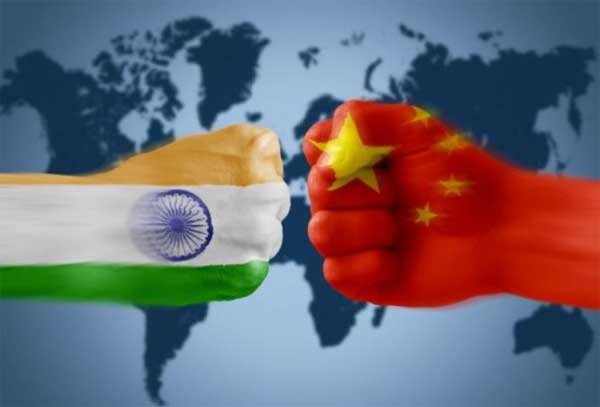New Delhi, June 30 India on Friday said it has told China that the building of a road by Chinese troops in a border region will have “serious security implications for India” and urged Beijing “not to change the status quo unilaterally”.
“India is deeply concerned at the recent Chinese actions and has conveyed to the Chinese government that such construction would represent a significant change of status quo with serious security implications for India,” an External Affairs Ministry statement said.
This was India’s first public reaction to an ongoing stand-off between Indian and Chinese troops on their border. Beijing has sharply escalated the rhetoric, with the People’s Liberation Army telling New Delhi to remember its 1962 military debacle.
The statement said India had underlined that New Delhi and Beijing had in 2012 reached an agreement that the tri-junction boundary points between India, China and third countries would be finalized in consultation with the concerned countries.
“Any attempt, therefore, to unilaterally determine tri-junction points is in violation of this understanding,” the Indian statement said.
The latest stand-off occurred in Donglong or Doklam, a disputed territory between Bhutan and China. Beijing has accused India of obstructing road building in the area, which it claims as its own.
Beijing has also charged New Delhi with acting at the behest of Bhutan, which also lays claim to Donglong.
The External Affairs Ministry denied that Indian border troops crossed the boundary in the Sikkim sector of the China-India frontier and entered Chinese territory.
It said a PLA construction party entered Doklam area on June 16 and attempted to build a road despite objections from a Royal Bhutan Army patrol. Bhutan lodged a protest with China on June 20.
On Thursday, Bhutan said the construction of the road inside its territory was a violation of the 1988 and 1998 agreements with China.
India said that in keeping with the tradition of maintaining close consultation on matters of mutual interest, Bhutan and India had been in continuous contact “through the unfolding of these developments”.
It said that in coordination with the Bhutanese Army, Indian soldiers who were present at general area Doka La “approached the Chinese construction party and urged them to desist from changing the status quo. These efforts continue”.
India said the matter was under discussion between the Indian and Chinese foreign ministries since then both in New Delhi and Beijing. It was also discussed at a meeting of border personnel at Nathu La on June 20.
“Where the boundary in the Sikkim sector is concerned, India and China had reached an understanding also in 2012 reconfirming their mutual agreement on the ‘basis of the alignment’.
“Further discussions regarding finalization of the boundary have been taking place under the Special Representatives framework.
“It is essential that all parties concerned display utmost restraint and abide by their respective bilateral understandings not to change the status quo unilaterally.
“It is also important that the consensus reached between India and China through the Special Representatives process is scrupulously respected by both sides.”
The statement said India had consistently taken a positive approach to the settlement of its own boundary with China, along with the associated issue of the tri-junctions.
It said India cherished peace and tranquillity on the India-China border areas. “It has not come easily.
“Both sides have worked hard to establish institutional framework to discuss all issues to ensure peace and tranquillity in the India-China border areas,” the statement said.
“India is committed to working with China to find peaceful resolution of all issues in the border areas through dialogue.”
